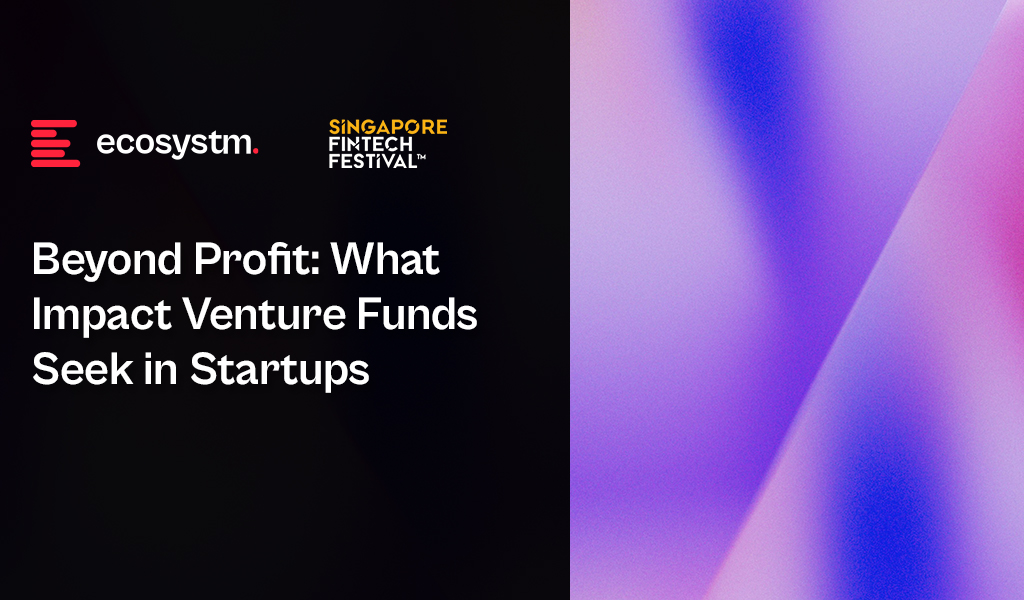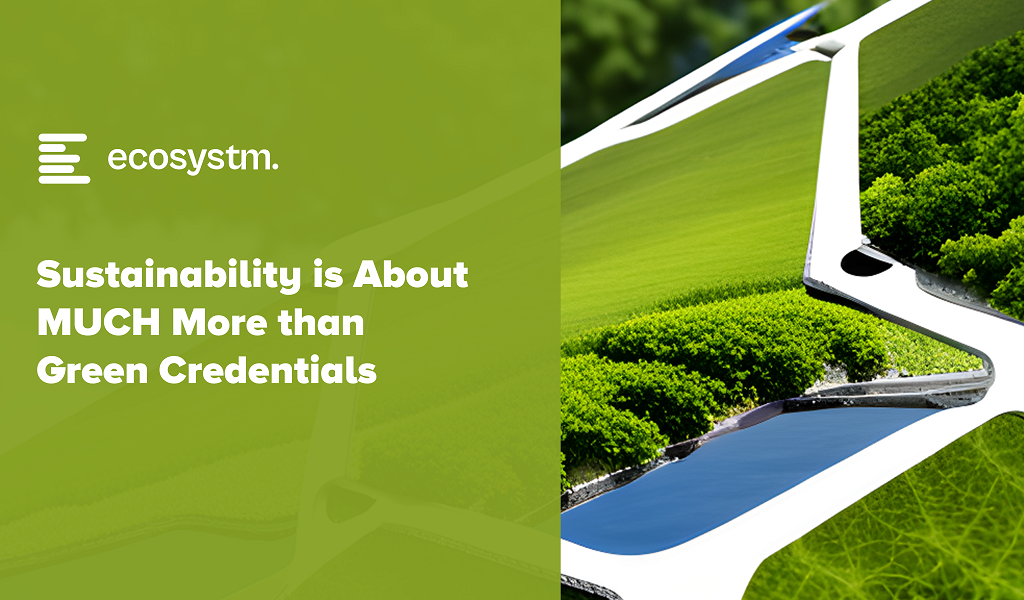If you are a startup seeking investment, you might initially consider venture capital or business angels. However, with the increasing awareness of global needs for humanity, society, and the planet, impact investing has emerged as a significant source of finance for good. This market, which was valued at approximately USD 230 billion in 2017, is projected to reach around USD 1 trillion by 2025.
For mission-driven startups addressing critical issues in healthcare, education, or climate change, it’s essential to explore the potential of attracting impact venture funds. These funds offer not just capital but also collaborative opportunities. Even if you’re just starting out or operating on a small scale, understanding the investment criteria early on is crucial.
Impact venture funds aim to generate measurable social and/or environmental impact alongside financial returns.
In addition to the conventional expectation of financial performance, here are 5 key investment criteria for impact venture funds.
Click here to download ‘Beyond Profit: What Impact Venture Funds Seek in Startups’ as a PDF
#1 The Impact is Positive
But what does “impact” actually mean? Many people use the term in a generic sense to describe some positive effect of a business or organisation. However, in the world of “impact investing”, impact has a specific meaning.
Impact is the ultimate large-scale contribution of a business, company or country to society including the environment.
This impact can be both positive and negative. It is fair to say that in the process of producing goods and services worldwide, positive and negative impacts are created simultaneously. The key question is whether the positive outweighs the negative.
#2 The Impact is Social or Environmental
As for a business, company, or country’s contribution to society, the UN Sustainable Development Goals are a solid framework are a solid framework for orientation. These are the pressing problems that once improved will lead to a more balanced and sustainable future.
Any company of any size and from any industry can easily identify which of the SDGs their products and services support.
By using references to certain SDGs organisations can then communicate their vision and mission more clearly to investors but also other relevant stakeholders such as governments, communities, suppliers, and consumers.
#3 The Impact is Long-Term
The “ultimate” aspect of impact refers to the fact that impact is not about immediate outputs or outcomes.
Impact is the long-term consequence and systemic change due to a continuous use of an organisation’s products and services.
If we take the example of a fintech solution that promotes financial literacy, transparency, or inclusive access to investing, the impact of that solution is not that people benefit from easier or faster financial transactions. Rather, it’s about creating new financial opportunities for a broader segment of the world population, potentially leading to greater economic empowerment for underserved groups – aligning with SDG 8 (Decent Work and Economic Growth) and SDG 5 (Gender Equality).
#4 The Impact is Scalable
The “large-scale” aspect of impact is critical for impact venture funds, as they seek to invest in scalable businesses that can amplify positive outcomes. Given the urgency of global challenges, there is no time or resources to spare on small-scale solutions. The geographic location of a startup or its initial focus on a specific region is irrelevant – what matters is its potential to grow and address pressing global issues efficiently.
If a product, service, or solution is sufficiently generic and easily scalable to reach a broader audience and various markets, the potential impact of that business will be appealing to impact venture funds.
#5 The Impact is Measurable
It is easy for organisations to remain vague or qualitative in their statements about impact, particularly when discussing the positive and charitable aspects of their actions.
If organisations are serious about creating change, they need to treat impact as an equal measure to profit. As Peter Drucker famously said, “If you can’t measure it, you can’t manage it”.
In the impact realm, deriving meaningful KPIs can be complex. Collaborating with an impact venture fund not only sets the expectations but also provides guidance to establish a transparent framework of KPIs to measure a business’s impact.
Ecosystm Opinion
Many believe only social businesses qualify for impact venture funding. In reality, any (tech) company solving societal or environmental issues is inherently impact-oriented. The key is awareness, measurement, and partnering with the right people.
Check out the websites and portfolios of impact venture funds – you’ll be surprised by the diverse areas and industries they support. Your startup might be the perfect match!

As an industry, the tech sector tends to jump on keywords and terms – and sometimes reshapes their meaning and intention. “Sustainable” is one of those terms. Technology vendors are selling (allegedly!) “sustainable software/hardware/services/solutions” – in fact, the focus on “green” or “zero carbon” or “recycled” or “circular economy” is increasing exponentially at the moment. And that is good news – as I mentioned in my previous post, we need to significantly reduce greenhouse gas emissions if we want a future for our kids. But there is a significant disconnect between the way tech vendors use the word “sustainable” and the way it is used in boardrooms and senior management teams of their clients.
Defining Sustainability
For organisations, Sustainability is a broad business goal – in fact for many, it is the over-arching goal. A sustainable organisation operates in a way that balances economic, social, and environmental (ESG) considerations. Rather than focusing solely on profits, a sustainable organisation aims to meet the needs of the present without compromising the ability of future generations to meet their own needs.
This is what building a “Sustainable Organisation” typically involves:
Economic Sustainability. The organisation must be financially stable and operate in a manner that ensures long-term economic viability. It doesn’t just focus on short-term profits but invests in long-term growth and resilience.
Social Sustainability. This involves the organisation’s responsibility to its employees, stakeholders, and the wider community. A sustainable organisation will promote fair labour practices, invest in employee well-being, foster diversity and inclusion, and engage in ethical decision-making. It often involves community engagement and initiatives that support societal growth and well-being.
Environmental Sustainability. This facet includes the responsible use of natural resources and minimising negative impacts on the environment. A sustainable organisation seeks to reduce its carbon footprint, minimise waste, enhance energy efficiency, and often supports or initiates activities that promote environmental conservation.
Governance and Ethical Considerations. Sustainable organisations tend to have transparent and responsible governance. They follow ethical business practices, comply with laws and regulations, and foster a culture of integrity and accountability.
Security and Resilience. Sustainable organisations have the ability to thwart bad actors – and in the situation that they are breached, to recover from these breaches quickly and safely. Sustainable organisations can survive cybersecurity incidents and continue to operate when breaches occur, with the least impact.
Long-Term Focus. Sustainability often requires a long-term perspective. By looking beyond immediate gains and considering the long-term impact of decisions, a sustainable organisation can better align its strategies with broader societal goals.
Stakeholder Engagement. Understanding and addressing the needs and concerns of different stakeholders (including employees, customers, suppliers, communities, and shareholders) is key to sustainability. This includes open communication and collaboration with these groups to foster relationships based on trust and mutual benefit.
Adaptation and Innovation. The organisation is not static and recognises the need for continual improvement and adaptation. This might include innovation in products, services, or processes to meet evolving sustainability standards and societal expectations.
Alignment with the United Nations’ Sustainable Development Goals (UNSDGs). Many sustainable organisations align their strategies and operations with the UNSDGs which provide a global framework for addressing sustainability challenges.
Organisations Appreciate Precise Messaging
A sustainable organisation is one that integrates economic, social, and environmental considerations into all aspects of its operations. It goes beyond mere compliance with laws to actively pursue positive impacts on people and the planet, maintaining a balance that ensures long-term success and resilience.
These factors are all top of mind when business leaders, boards and government agencies use the word “sustainable”. Helping organisations meet their emission reduction targets is a good starting point – but it is a long way from all businesses need to become sustainable organisations.
Tech providers need to reconsider their use of the term “sustainable” – unless their solution or service is helping organisations meet all of the features outlined above. Using specific language would be favoured by most customers – telling them how the solution will help them reduce greenhouse gas emissions, meet compliance requirements for CO2 and/or waste reduction, and save money on electricity and/or management costs – these are all likely to get the sale over the line faster than a broad “sustainability” messaging will.














